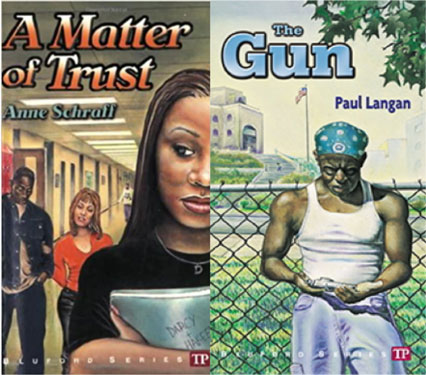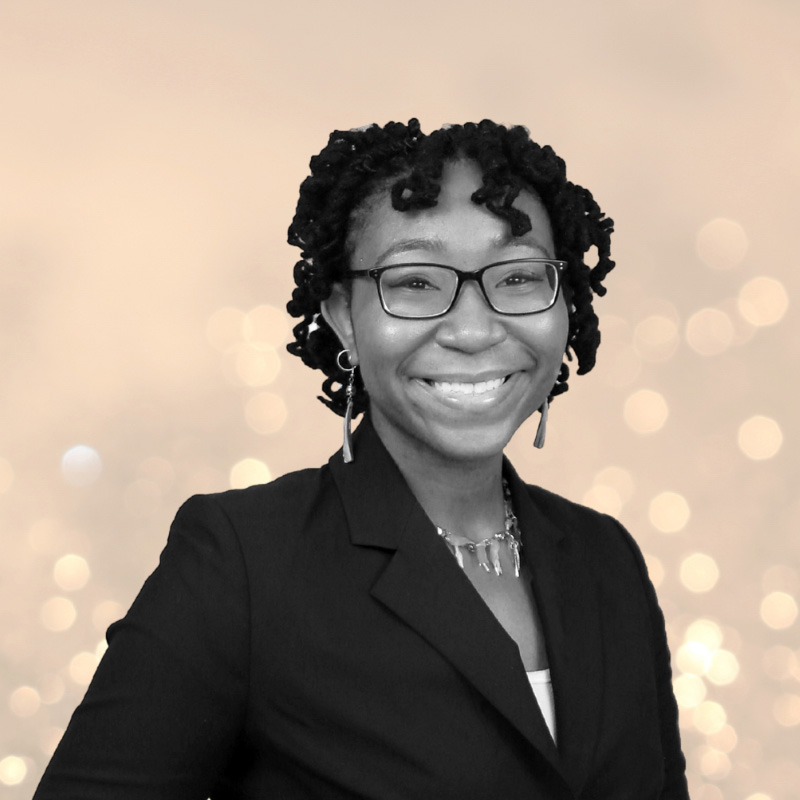Now, nearly two decades after the release of the first Bluford novel, a social media influencer made it widely known that the authors were White. The shock and betrayal were felt throughout popular online spaces, and it became clear that the writers of the series were previously protected by the fact that other authors of urban literature were correctly assumed to be Black.
By: Cheyanne Rosier, B.S, Carnegie Mellon University

As a Black American who grew up in the 2000s, it’s hard to forget the challenges of finding books with relatable protagonists. Most popular young adult series, whether they be dramatic, fantastical, or adventurous in their prose, was centered around the idiosyncrasies of an astonishingly White childhood. I was not unique in the fact that I felt compelled to find bits and pieces of myself in characters who would frequently toss their long blond hair, and blink their deep blue eyes. For many young Black children, loving to read meant conceding the fact that they would never see themselves represented in their favorite novels. Though the landscape of popular children’s literature has shifted heavily in the face of calls for diversity, it is still worth reflecting on the kinds of stories that today’s Black adults internalized as adolescents.
Many books targeting Black youth leaned heavily into stereotypes about drugs, poverty, and violence.2 Black protagonists were often in gangs, relegated to abusive households, and the inevitability of life in prison. In particular, one series of books was so popular that most Black American millennials remember reading, or at least seeing, them as children. The Bluford Series, previously known as the Bluford High Series, was a collection of young adult novels following the hardships of high school students in southern California.
None of the characters featured in the series were allowed to be children; they all suffered the consequences of their highly stereotyped, urbanized environments. Each protagonist seemed to be a caricature of the Black experience, struggling as they tried to escape the crippling trauma their author(s) levied against them.
It’s hard to pinpoint exactly what garnered such a large following of this particular series. Perhaps it was the highly theatrical nature of the stories, which resembled the soapy drama of modern reality television. But whether you loved or hated them, there is one major problem with The Bluford Series that should be further explored. Of the twenty-two books released to date, all but five were written solely by White men and women.11
These stories of painfully stereotyped youth were being crafted by White authors who capitalized on Black children’s desire to see themselves represented in novels. Full of slang, unsettling situations, and cliché Black names, these books are a vision of Blackness through privileged White-eyes.
There are notes of truth to these stories. Some Black youth are being raised in environments where they are exposed to the kinds of trauma being depicted by these authors. However, it is an affront to those children for their experiences to be exploited for the financial gain of individuals who have no concept of their realities. This genre of novels, known as urban or street fiction, is popular among young Black Americans.1
Studies have shown that urban fiction is helpful in encouraging incarcerated and at-risk teenagers to find a love for reading.4 But most of the genre’s most revered writers, such as Sistah Souljah, Wahida Clark, and K’wan, are Black authors who have personally witnessed or experienced the circumstances their characters must navigate.3,8,9,10 They draw from their own lives in order to draft cautionary tales that can positively impact people who stand where they once stood.3 In mimicking their stories, the White authors of The Bluford Series have commodified Black experiences, desecrating a previously safe space and mocking the intentions of other writers within the genre.
Now, nearly two decades after the release of the first Bluford novel, a social media influencer made it widely known that the authors were White. The shock and betrayal were felt throughout popular online spaces, and it became clear that the writers of the series were previously protected by the fact that other authors of urban literature were correctly assumed to be Black. Paul Langan, the primary author of the Bluford books, claimed that he originally got the idea for the series in 2001 while working as a summer reading coordinator for Philadelphia teenagers.5 In his experience, the students generally disliked the suggested or mandatory reading, and much-preferred books that reflected them and their environments.5
Paul Langan stated in an interview that he wanted to create stories that excited, acknowledged, and embraced students of color.5 Though it’s a noble claim of intent, one has to wonder if the execution, a racially charged series that exploits Black experiences, is true to the cause. Was this really the only possible solution? Does embracing and acknowledging children of color mean presenting them with the most stereotyped version of themselves? Paul Langan stated that mainstream publishers were neglecting audiences of color in their refusal to publish books that cater to them.5
In the current publishing landscape, we are finally seeing more Black authors given a voice to tell their stories. The case of the Bluford series shows us why that is important. To White authors who interact with young Black students, encouraging literacy is only done by projecting negative imagery on them. For Black writers, there is more care and empathy in their craft, as they can directly relate not only to these students but to the pain of being associated with harmful stereotypes. Black writers can be more careful in crafting relatable characters without leaning into clichés that can be damaging to young readers. Universal Write Publications, a niche academic publisher, has made this truth the foundation of its mission.
The UWP slogan, “We Will Tell Our Own Stories,” directly relates to the way White creators have co-opted Black experiences for their own financial gain. Regardless of his intentions, the creator of the Bluford series capitalized in this way for many years. In a select few of his newer titles, Black writers and co-writers have been brought to the forefront. I admit that I have only read a few of the Bluford novels, but I found it interesting that the books with Black writers or co-writers have much less racial stereotyping in their synopses. As a scientist, I wouldn’t dare to claim that the correlation between Black authors and less charged synopses indicates causation; but I imagine it’s much harder for White creators to integrate racism into their work when they collaborate with a person of color.
UWP Books is committed to helping Black authors publish peer-reviewed books that actually serve the Black community. Black publishing is pivotal in helping these students realize their own worth and strengths. White-owned publishing companies (Bluford books are published by Townsend Press, which is owned by John Langan) who benefit from highly stereotyped Black stories, are not in the business of helping the Black community.7 Supporting Black-owned publishing companies and Black books can help to prevent students of color from being forced to view their lives, histories, and idols through the negative lens of stereotypes and racism.
We must all do our parts in changing education by supporting these publishing companies and demanding the right to tell our own stories.
______________________________
1 Marshall, E., Staples, J., & Gibson, S. (2009). Ghetto fabulous: Reading black adolescent femininity in contemporary urban street fiction. Journal of Adolescent & Adult Literacy, 53(1), 28–36.
2 Van Orman, K., & Lyiscott, J. (2013). Politely Disregarded: Street Fiction, Mass Incarceration, and Critical Praxis. English Journal, 102(4), 59–66.
3 Wright, D. (2006). Streetwise Urban Fiction. Library Journal, 131(12), 42–45.
4 Guerra, S. F. (2012). Using urban fiction to engage at-risk and incarcerated youths in literacy instruction. Journal of Adolescent & Adult Literacy, 55(5), 385–394.
5 Jones, P. (2015, May 27). Patrick Jones interviews Paul Langan. Juvenile Justice Literacy Project. Retrieved October 7, 2021, from https://writetoreadbooks.wordpress.com/2015/05/27/patrick-jones-interviews-paul-langan/.
6 Campbell, J. (2011, March 29). Behind Books for Urban Students, an Unlikely Author. City Room: Blogging from the Five Boroughs. Retrieved October 15, 2021, from https://cityroom.blogs.nytimes.com/2011/03/29/behind-books-for-urban-students-an-unlikely-author/.
7 Langan, J. (2017). The Origins of Townsend Press. Retrieved 2021, from https://www.townsendpress.com/sites/default/files/Origins%20of%20Townsend%20Press.pdf.
8 W. Clark Publishing: Best Books in the urban lit genre. W. Clark Publishing | Best Books in the Urban Lit Genre. (n.d.). Retrieved October 15, 2021, from https://www.wclarkpublishing.com/.
9 Sister Souljah. Simon & Schuster. (n.d.). Retrieved October 15, 2021, from https://www.simonandschuster.com/authors/Sister-Souljah/1278943.
10 K’wan. Simon & Schuster. (n.d.). Retrieved October 15, 2021, from https://www.simonandschuster.com/authors/Kwan/41824691.
11Audiobooks. Audiobooks – The Bluford Series. (n.d.). Retrieved October 15, 2021, from https://www.bluford.org/audiobooks/

